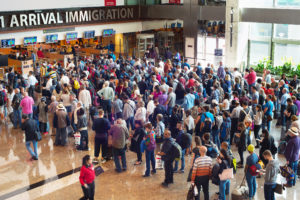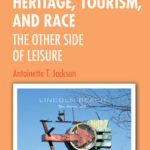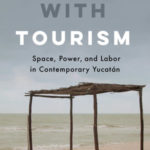Tourism

Travelers arrive at the immigration checkpoint at Changi Airport in Singapore. Photo by joyfull/Shutterstock.com
Unlike other migrants highlighted in World on the Move, tourists travel with a specific plan to return home soon. And yet, we can ask many of the same questions about tourism that we ask about other stories of mobility: what is the effect of migration on tourists, on the places they visit, and on the people they leave behind?
Often these stories are complicated and contradictory. For example, the anthropologist Matilde Córdoba Azcárate wrote an award-winning book on the effects of tourism in Yucatán, Mexico that shows how locals often have no other choice than to work in the tourism industry, which exploits some people in unethical and even predatory ways. And yet, as she told Anthropology News, “Nobody I spoke with, not even the most radically opposed to tourism, wanted the end of it … The book is a cautionary tale that helps nuance the still persistent turn to tourism as a solution in times of crisis.”
The lure of tourists’ money may change not only the locals, but also the place itself. When war and conflict made it unsafe for pilgrims to access Jesus’ baptismal site, another pilgrimage site opened up 70 miles away with all the trappings of modern tourist infrastructure. According to anthropologists who have visited the new site, visitors recognize the commercialism of the new site, but this does not stop them from having what they describe as a real spiritual experience. Another place changed by tourism is the humble youth hostel, which in some cases has undergone an upscale makeover to cater to wealthier backpackers, which, in an echo of gentrification, leaves “brokepackers” at the lower end with nowhere to stay.
When we think about “those left behind” by tourism, we might think less about people who stay home while their friends go on vacation, and more about those who, for whatever reason, are not able to participate in tourism. As the anthropologist Antoinette Jackson writes, while African Americans do participate in tourism, more general discussions about tourism often fail to imagine a Black tourist. (For a more recent example, consider this podcast about wealthy Black tourists waiting out the COVID-19 shutdown in Tulum, Mexico.) Other researchers have studied disabled people’s access to tourism, for example, looking at how central sound is in many tourist experiences, and the implications of this for Deaf tourists.
Videos
Other Resources
Podcasts and Playlists
Vice News Reports, In Search of a Black Utopia
Academic Articles
The Future of Deaf Tourism Studies: An Interdisciplinary Research Agenda – Annals of Tourism Research
Circulation and Consumption: Transnational Mass Tourism in Cancun, Mexico – Student Anthropologist
News Articles
How Tourism Reinvented Jesus’ Baptismal Site – Sapiens
How Hostels have Turned Backpackers into “Brokepackers” – Sapiens
Discussing Tourism Traps with Matilde Córdoba Azcárate – Anthropology News

